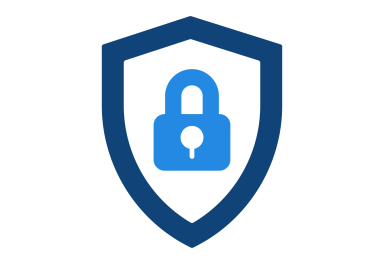

The LSR Cybersecurity Academy
We help small and medium-sized businesses to defend and secure themselves from cyber-threats through expert academy courses, workshops, cybersecurity assessments and audits, and tailored consulting services.

New Expertise For New Cyber-Threats
Digital technology now plays a significant role in companies of all sizes, including the smallest. This unfortunately has attracted increasing interest from cybercriminals as, unlike large companies, very small enterprises (VSEs) and small and medium-sized enterprises (SMEs) are typically unprepared for incidents or unaware of the risks. For a VSE or SME, the consequences of a cyberattack can be critical and even disastrous.

Cybersecurity Topics
Our academy courses introduce best practices to avoid cyberattacks while staying compliant with local laws and regulations. We offer extended training on backups management, password management, and malware defense.

Compliance
We offer modules on cybersecurity compliance for VSEs and SMEs, including compliance with regulations such as GDPR, insurance coverage, financial considerations, and other types of protection against identity theft, data breaches, and more.

Consulting
For those needing extra support, we offer workshops and simulation exercises for companies to learn how to manage a cyber crisis. We also provide assessments and audits of overall business compliance and cyber risk.
Academy Offerings
Our academy courses are affordable, expert educational sessions that enable VSEs and SMEs to understand their risks and proactively mitigate them, thus saving significant time, money, and stress by avoiding expensive cyberattacks.

Cybersecurity Best Practices
This module details the minimum activities that should be performed in order to avoid cyberattacks, such as backups, supported software updates, global antivirus deployment, firewall and flow filtering, password policies, messaging and communication devices, user account privileges, precautions when working out of the office or traveling, and responses to security incidents.

Backup Specifics
This module focuses on backup requirements and management, including content, periodicity, format, data encryption, and regulatory requirements.

Password Specifics
This course focuses on password requirements and management, including robust passwords, multi-factor authentication, password vaults, physical tokens, and SSO policies.

Malware Defense
This module focuses on messaging, the main vector of workstation infection through either malicious attachments or links (phishing). This course also details techniques to protect against phishing attempts and other threats (ransomware, Trojan horse, spyware, worms, social engineering, MITM, DDoS, etc.)

Compliance: Module 1 for VSBs and SMBs
This first module covers requirements for compliance with regulations regarding data (GDPR). Other specific standards are also covered, including the PCI-DSS – Payment Card Industry – Data Security Standard. Clients learn to select the most relevant insurance covering their appropriate risks or exposure, ensure financial coverage of damage, and enact various types of protection (identity theft, guarantees against business interruption, legal support for a declaration of a breach of personal data, provision of technical support for system restoration, and more).

Compliance: Module 2 for SMBs
The second module provides an extended presentation of new or strengthened legislation regarding due diligence, privacy, financial and non-financial reporting, sanctions regimes, customs, and cybersecurity. These topics are important not only for clients' products or services but also to ensure responsibility and sustainability while working through a chain of suppliers or subcontractors. Compliance is a top priority for many businesses to avoid sanctions, fines, and prosecutions.

Workshops and Simulation Exercises
Our workshops and simulations allow clients to learn how to manage a cyber crisis while providing theoretical and practical insights of crisis management to ensure they are prepared to respond to a cyberattack. Attendees benefit by taking appropriate measures and knowing what to do or who to contact in the event of an incident.
Business Consulting
In addition to courses, LSR Cybersecurity Academy provides overall support to clients to evaluate their compliance and risk of cyberattacks based on their industry, business model, and asset profile.

Assessments and Audits
As a first step, a company’s hardware, software, and information assets are inventoried and a global dashboard is generated, showing an evaluation and recommended actions.

Support and Emergency Assistance
In the case of an actual cyberattack, we provide urgent support in stopping the attack (if possible), filing complaints, interacting with insurance companies, and finding a lawyer (if needed).

“For many small and medium-sized businesses, there are too few options tailored to their specific cybersecurity needs. The LSR Cybersecurity Academy team brings decades of experience and a unique approach to help build protective resilience against online threats.”
SABRINA DANINO - FOUNDER & CEO

Contact Us
To find out more or to connect with us about our full academy curriculum and in-take dates, please leave your name and email address and we'll get back to you.
Alternatively, you can leave us a short message through our contact page.

We need your consent to load the translations
We use a third-party service to translate the website content that may collect data about your activity. Please review the details and accept the service to view the translations.

